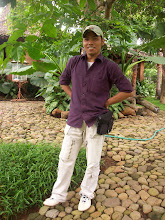Various techniques were done by refiners to market essential oils. On production phase, Rahmad Hidayat Syam, a refiner in Cikereteg, Bogor Regency, is building cooperation with 10 agents who are supplying raw material. Hidayat provides refinery facility and also buys their oils. Every month he routinely obtains 5-6 tonnes of nutmeg oil. Valued at IDR450.000 per kg, he earned IDR2,25-billionIDR2,70-billion a month. His net profit is IDR70.000 per kg or IDR350-million a month.
A different strategy is applied by Eko Wibowo, a refiner in Cianjur, West Java. He provides around 20 kinds of essential oil such as clove leaf oil, clove stalk oil, clove flower oil, vetiver oil, patchouli oil, and nutmeg oil. He is able to fulfill any demand for all kinds of essential oil. ‘By having various essential oil, we will be easy to find market,’ said the man who was born on January 15th, 1976.
The diversities of essential oil that he trades are also to minimize loss as cross subsidy is possible among those oils. Eko has experienced it in 2005 when the price of patchouli oil dropped to IDR150.000 per kg from IDR400.000, while the selling price of clove oil was in fact pull the price to IDR50.000 from IDR35.000 per kg. Other tips to market essential oil are by visiting the embassies, sending samples to exporters, or entrusting samples to a friend who is studying abroad



